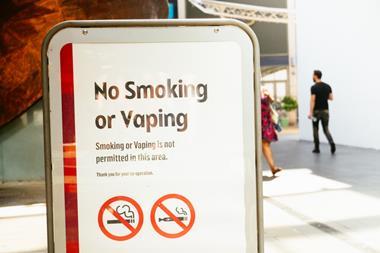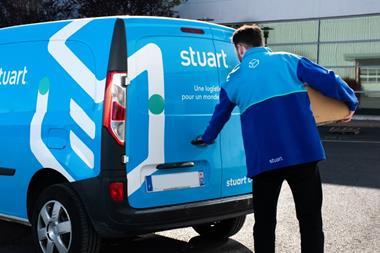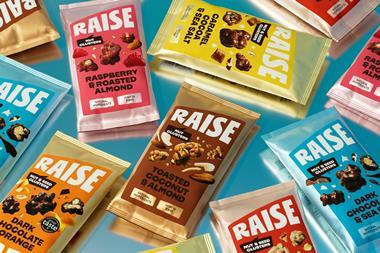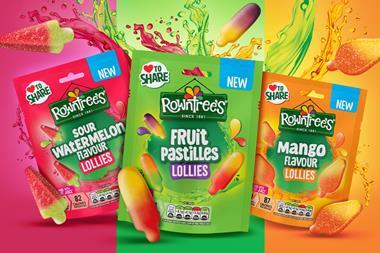Unfortunately, cigarettes and tobacco remain hugely attractive booty to criminals and one of the biggest problems remains tobacco smuggling.
In 2000 the government launched its Tackling Tobacco Smuggling campaign with a £200m-plus investment in staff and technology. It says this has been a success -safeguarding about £6bn of public money, but despite this 'success', one in six cigarettes and about half of all hand-rolling tobacco smoked in Britain is 'illicit' and there's also a growing trade in counterfeit cigarettes.
Earlier this year, HM Revenue & Customs issued its 'New responses to new challenges: reinforcing the tackling tobacco smuggling strategy' document, to show its commitment to doing more to sort the problem.
It's an important issue for government as it is committed to reducing the number of smokers in the UK to 21% by 2010, and availability of cheap cigarettes undermines its work.
Apparently, tobacco smuggling costs £2.9bn a year in lost revenue, which is equivalent to 1p off the basic rate of income tax. In 2000 more than one cigarette in five was smuggled and smuggling was a huge problem, particularly at ports in the South East.
According to the National Audit Office, as a result of the government's initial campaign the size of the illicit cigarette market has decreased from 21% in 2000/1 to 16% in 2003/4. However, the latest data suggests that instead of levels of illegal cigarettes declining, levels are now flattening out.
Customs has seized more than 11 billion cigarettes in the UK at ports, airports and inland, and also en route to the UK. Officials have also broken up 320 criminals gangs; successfully prosecuted almost 2,500 people; and issued £21m-worth of confiscation orders.
However, cheap flights have led to an increase in smuggling by air passengers. An operation at Luton Airport targeting late-night flights in September 2005 resulted in the seizure of more than one million cigarettes, including 51 bags containing 700,000 cigarettes on just two flights.
The seizure only goes to show that smugglers have adapted to the new trading environment and as a result the problem is more complex, and as well as the smuggling of genuine UK-manufactured cigarettes there's more smuggling of counterfeit cigarettes.
These cigarettes are a real concern because although the health risks have not yet been fully evaluated counterfeit cigarettes have been found to contain higher levels of arsenic, cadmium, lead, tar, nicotine and carbon monoxide than their genuine counterparts.
The government's initial approach to tackling tobacco smuggling has included making it harder for smugglers to source tobacco; disrupting the supply chain; increasing the risks; and reducing the rewards of smuggling. In its updated approach, the government has outlined four new measures: working more closely with tobacco manufacturers; enhancing Customs' operational response with the introduction of 200 extra staff to focus on hand-rolling tobacco; using technology to detect illicit goods; and increasing awareness of Customs' enforcements and undermining the appeal of smuggled tobacco to current and potential customers.
The latest Convenience Tracking Programme survey from shopper research company Him quizzed 27,000 shoppers across 30 convenience chains during spring 2006. Him director Tom Fender discusses the results: "We found that 31% of the shoppers smoke but a further 3% said they smoke 'sometimes', which probably makes them social smokers.
"Interestingly, 10% of shoppers who bought cigarettes said they didn't smoke so they were buying them for other people. I wonder if store staff are trained to deal with purchasers who don't smoke and whether they can help with queries if the smokers' preferred brand or pack size is not available.
"Smokers said they buy 45% of their cigarettes from their c-store but 20% said they never bought them from their c-store and 30% said they would not buy them from a forecourt shop. This is a worry and probably has a lot to do with price perception.
"Still on price, 45% of smokers think a pricemarked cigarette pack means the price is lower than normal. And when asked about this, a further 25% said they didn't know if this was true. Perhaps pricemarked packs and price flashed packs are something to consider rather than price reduction?"
In 2000 the government launched its Tackling Tobacco Smuggling campaign with a £200m-plus investment in staff and technology. It says this has been a success -safeguarding about £6bn of public money, but despite this 'success', one in six cigarettes and about half of all hand-rolling tobacco smoked in Britain is 'illicit' and there's also a growing trade in counterfeit cigarettes.
Earlier this year, HM Revenue & Customs issued its 'New responses to new challenges: reinforcing the tackling tobacco smuggling strategy' document, to show its commitment to doing more to sort the problem.
It's an important issue for government as it is committed to reducing the number of smokers in the UK to 21% by 2010, and availability of cheap cigarettes undermines its work.
Apparently, tobacco smuggling costs £2.9bn a year in lost revenue, which is equivalent to 1p off the basic rate of income tax. In 2000 more than one cigarette in five was smuggled and smuggling was a huge problem, particularly at ports in the South East.
According to the National Audit Office, as a result of the government's initial campaign the size of the illicit cigarette market has decreased from 21% in 2000/1 to 16% in 2003/4. However, the latest data suggests that instead of levels of illegal cigarettes declining, levels are now flattening out.
Customs has seized more than 11 billion cigarettes in the UK at ports, airports and inland, and also en route to the UK. Officials have also broken up 320 criminals gangs; successfully prosecuted almost 2,500 people; and issued £21m-worth of confiscation orders.
However, cheap flights have led to an increase in smuggling by air passengers. An operation at Luton Airport targeting late-night flights in September 2005 resulted in the seizure of more than one million cigarettes, including 51 bags containing 700,000 cigarettes on just two flights.
The seizure only goes to show that smugglers have adapted to the new trading environment and as a result the problem is more complex, and as well as the smuggling of genuine UK-manufactured cigarettes there's more smuggling of counterfeit cigarettes.
These cigarettes are a real concern because although the health risks have not yet been fully evaluated counterfeit cigarettes have been found to contain higher levels of arsenic, cadmium, lead, tar, nicotine and carbon monoxide than their genuine counterparts.
The government's initial approach to tackling tobacco smuggling has included making it harder for smugglers to source tobacco; disrupting the supply chain; increasing the risks; and reducing the rewards of smuggling. In its updated approach, the government has outlined four new measures: working more closely with tobacco manufacturers; enhancing Customs' operational response with the introduction of 200 extra staff to focus on hand-rolling tobacco; using technology to detect illicit goods; and increasing awareness of Customs' enforcements and undermining the appeal of smuggled tobacco to current and potential customers.
Shoppers and smokers
The latest Convenience Tracking Programme survey from shopper research company Him quizzed 27,000 shoppers across 30 convenience chains during spring 2006. Him director Tom Fender discusses the results: "We found that 31% of the shoppers smoke but a further 3% said they smoke 'sometimes', which probably makes them social smokers.
"Interestingly, 10% of shoppers who bought cigarettes said they didn't smoke so they were buying them for other people. I wonder if store staff are trained to deal with purchasers who don't smoke and whether they can help with queries if the smokers' preferred brand or pack size is not available.
"Smokers said they buy 45% of their cigarettes from their c-store but 20% said they never bought them from their c-store and 30% said they would not buy them from a forecourt shop. This is a worry and probably has a lot to do with price perception.
"Still on price, 45% of smokers think a pricemarked cigarette pack means the price is lower than normal. And when asked about this, a further 25% said they didn't know if this was true. Perhaps pricemarked packs and price flashed packs are something to consider rather than price reduction?"
































No comments yet